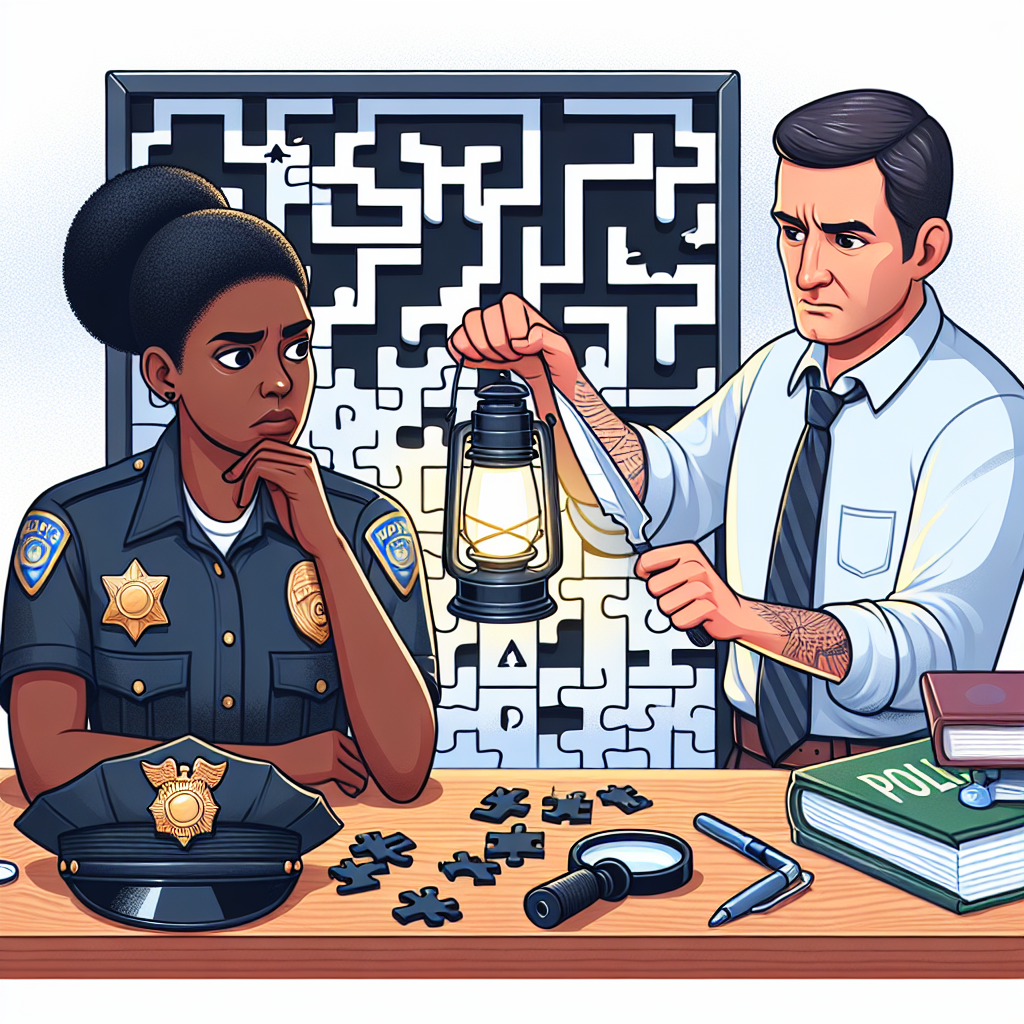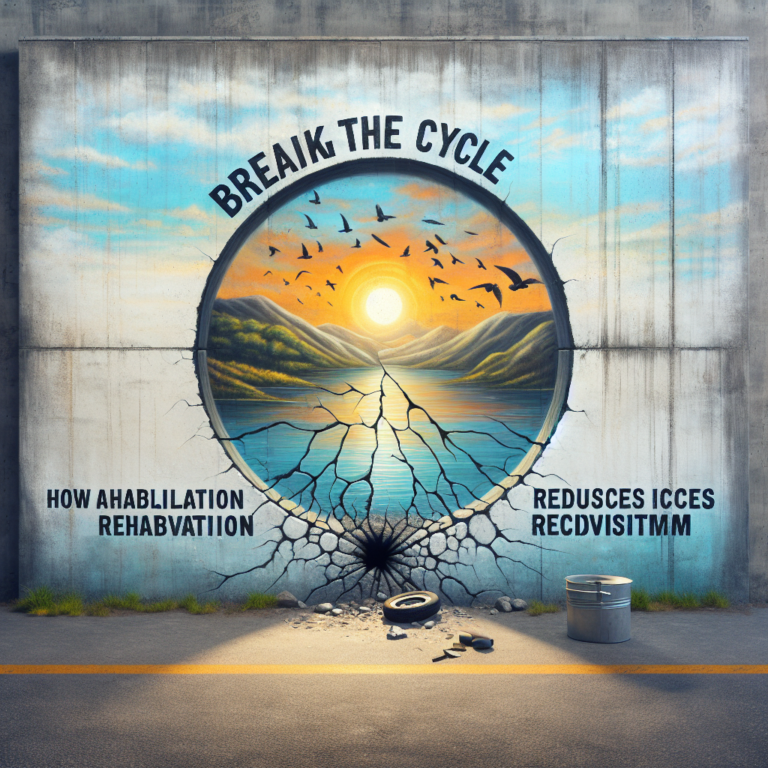
Introduction
In recent years, the conversation around mental health has significantly evolved, especially within high-stress professions such as law enforcement. Police officers are consistently exposed to traumatic events, which can have a profound impact on their mental health. As society grows increasingly aware of the shadows cast by trauma, the necessity of navigating these issues in the realm of policing becomes crucial. This article delves into Navigating Trauma: How Police Psychology Addresses Mental Health in Law Enforcement, exploring its significance, techniques, and the implications for both officers and the communities they serve.
Understanding the Dimensions of Trauma in Law Enforcement
The Nature of Police Work
Police work is inherently challenging. Officers face unique stressors, including exposure to violence, witnessing tragic accidents, and dealing with the aftermath of crimes. According to studies, law enforcement officers are significantly more likely to experience PTSD than the general population. The heavy burden of trauma can manifest in various ways, from anxiety and depression to substance abuse.
Statistics on Officer Mental Health
A staggering 1 in 3 police officers experiences symptoms of PTSD at some point in their careers. Furthermore, the suicide rate among officers is approximately four times greater than that of the average American. Navigating Trauma: How Police Psychology Addresses Mental Health in Law Enforcement is imperative to understanding these alarming statistics and fostering a healthier workplace.
Common Symptoms of Trauma
Understanding the symptoms of trauma is a critical aspect of police psychology. Symptoms may include:
| Symptoms | Description |
|---|---|
| Intrusive Thoughts | Uncontrollable thoughts related to traumatic events. |
| Hyperarousal | Heightened alertness and reactivity. |
| Withdrawal | Avoidance of situations reminiscent of the trauma. |
| Emotional Numbness | Difficulty experiencing emotions. |
| Changes in Sleep | Insomnia or oversleeping. |
As mental health in law enforcement becomes a focal point, recognizing these symptoms is the first step in healing.
Psychological Approaches to Navigating Trauma
Assessment and Diagnosis
Police psychologists specialize in evaluating officers who display signs of mental distress. Utilizing evidence-based tools and clinical interviews, they assess individual circumstances, determining the best course of action. Diagnoses may range from generalized anxiety disorder to PTSD, emphasizing the need for tailored treatment plans.
Therapeutic Interventions
Once a diagnosis is established, therapeutic interventions can be implemented. Here are some common therapeutic practices in police psychology:
Cognitive Behavioral Therapy (CBT):
- Aims to change destructive thought patterns.
- Research shows that CBT can significantly reduce symptoms of anxiety and depression in law enforcement officers.
Eye Movement Desensitization and Reprocessing (EMDR):
- Focuses on processing distressing memories.
- EMDR is proven particularly effective for PTSD in individuals who have experienced trauma.
- Mindfulness-Based Stress Reduction (MBSR):
- Encourages present-moment awareness to reduce stress.
- Officers practicing mindfulness report improved emotional regulation and lower stress levels.
Case Study: The Impact of CBT on Veterans and Law Enforcement
In a groundbreaking study at a major urban police department, officers underwent a 12-week CBT program. The results revealed a 50% reduction in PTSD symptoms among participants. This case study illustrates the tangible benefits of psychotherapy in navigating trauma and underscores the value of police psychology.
Building a Culture of Mental Health Awareness
Training and Workshops
Incorporating mental health training into police academy curricula is essential. Workshops that focus on coping mechanisms, recognizing stress, and self-care techniques can equip officers with the tools necessary to recognize and combat traumatic stress.
Table: Example Workshop Topics for Police Training
| Workshop Topic | Description |
|---|---|
| Stress Management Techniques | Tools to manage acute and chronic stress. |
| Recognizing Signs of Trauma | Identifying symptoms in oneself and peers. |
| Resources for Support | Information on mental health resources available. |
The Role of Peer Support Programs
Peer Intervention
Peer support programs can serve as valuable lifeboats for officers struggling with trauma. These programs create a safe space for sharing experiences, which helps in normalizing mental health discussions. Officers are often more willing to open up to peers than to clinicians, making these programs critical in navigating trauma.
Case Study: The New York City Police Department
The NYPD has successfully implemented peer support programs that offer confidential support to officers dealing with trauma. Officers reported reduced feelings of isolation and increased feelings of acceptance, underscoring the program’s efficacy in addressing mental health challenges.
The Importance of Organizational Support
Comprehensive Mental Health Policies
For a successful navigation of trauma in law enforcement, agencies must establish comprehensive mental health policies. These policies should focus on early intervention, providing resources, and a supportive work culture.
Leadership Involvement
Leadership plays a crucial role in fostering a culture that values mental health. By prioritizing officer well-being and engaging openly in discussions about trauma, department heads can help dismantle the stigma surrounding mental health issues.
Real-World Challenges to Implementation
Stigmas and Misconceptions
Despite progress in recent years, stigmas surrounding mental health still persist in law enforcement. Many officers fear repercussions if they seek help, viewing it as a sign of weakness. This mindset can create barriers that prevent effective intervention when navigating trauma.
Resources Limitations
Budget constraints can further inhibit mental health support within police departments. Many agencies struggle to allocate sufficient resources for psychological services. Navigating Trauma: How Police Psychology Addresses Mental Health in Law Enforcement may require external funding and advocacy efforts.
Moving Forward: Strategies for Change
Proactive Mental Health Screening
Regular mental health screenings can play an essential role in early detection of trauma-related issues. Agencies may consider implementing mandatory psychological evaluations at key points in an officer’s career, such as promotions or after critical incidents.
Collaboration with Mental Health Professionals
Enhancing partnerships with mental health organizations can offer additional resources for police departments. Community collaborations can provide specialized training and seminars, ensuring ongoing support for officers.
Encouraging an Open Culture
Creating an environment where open discussions about mental health are encouraged can help dismantle the stigma. Regular forums and anonymous surveys can provide officers a voice, leading to improvements in mental health initiatives.
Conclusion
Navigating Trauma: How Police Psychology Addresses Mental Health in Law Enforcement is not just a conceptual framework; it is an actionable strategy that can save lives. As we recognize the profound impacts of trauma on our law enforcement professionals, it is imperative to foster environments that prioritize mental health. From effective intervention strategies and peer support systems to comprehensive organizational policies, proactive steps can lead to a healthier future for officers and their communities.
As we move forward, departments should embrace mental health as a non-negotiable aspect of officer wellness. With concerted efforts from leadership, community partners, and officers themselves, we can create a culture where discussing and addressing mental health is viewed not as an obligation, but as a strength.
FAQs
1. What is police psychology?
Police psychology is a specialized field focused on addressing the psychological well-being of law enforcement personnel. It encompasses assessments, interventions, and strategies to enhance mental health.
2. How can officers access mental health resources?
Many departments offer Employee Assistance Programs (EAPs) that provide confidential counseling services. Officers can also seek external mental health professionals specializing in trauma.
3. What are the signs that an officer may need help?
Common signs include increased irritability, withdrawal from social interactions, changes in sleep patterns, and persistent feelings of sadness. If these symptoms are evident, seeking help is essential.
4. How can peer support programs be implemented?
Agencies can begin by training volunteers within the department to act as peer supporters. Creating a structured program with guidelines can ensure its effectiveness and confidentiality.
5. What role does leadership play in mental health support?
Leadership plays a pivotal role by setting the tone for mental health initiatives, promoting open dialogue, and demonstrating commitment to the well-being of officers.
Navigating trauma is essential, not just for the safety of officers but also for their communities, as a healthier police force leads to better public service. By understanding and addressing mental health proactively, we can create lasting change that benefits everyone involved.















